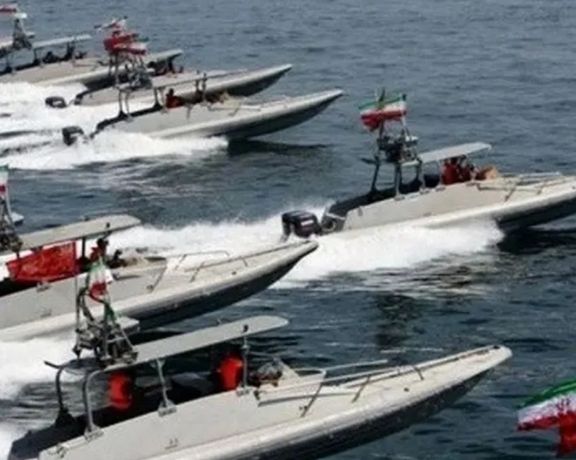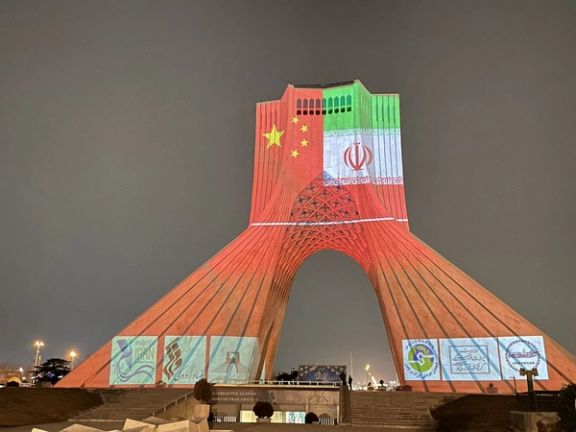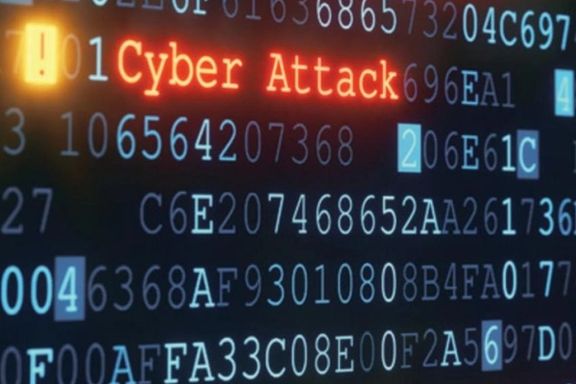US Appoints AI Expert Of Iranian Descent As Top Business Diplomat

The US secretary of state has welcomed Ramin Toloui as the new assistant secretary of state for the bureau of economic and business affairs.

The US secretary of state has welcomed Ramin Toloui as the new assistant secretary of state for the bureau of economic and business affairs.
In a tweet on Wednesday, Antony Blinken said the bureau will benefit from his extensive experience, “as we advance a foreign policy that delivers for the American people”.
Toloui was the assistant secretary of the treasury for international finance and development in the Obama administration and was appointed as the Biden’s administration nominee for assistant state secretary on July 30, 2021. He was confirmed by the Senate on December 16, 2021.
The purpose of the bureau is paving the way for American companies doing business in global markets, and leveraging economic tools to deny financing to terrorists, human rights abusers, and corrupt officials.
He is professor of finance at Stanford University, and his research focuses on international economic policy, financial crises, and the economic impact of artificial intelligence.
As Blinken’s point person for negotiating business agreements, Toloui’s expertise can be used to curb Iran’s network of money laundering and economic support for terrorist groups in the world as well as in the trade war with China.
Toloui was born and raised in Iowa and earned a Bachelor of Arts degree from Harvard University and an MPhil from Oxford University.

Twitter and Facebook have suspended pages and profiles of an Iranian disinformation unit that was targeting nationalist and ultra-religious Jews in Israel.
According to the BBC on Thursday, the alleged foreign interference campaign ran an elaborate network across multiple social media platforms posing as an ultra-Orthodox Jewish news group that supports extreme right-wing groups. The aim appears to have been sowing discord and inflame tensions with Palestinian.
The Israeli disinformation watchdog FakeReporter uncovered the group's Iranian origin, saying it sought to fuel "religious war" by amplifying "fear, hatred and chaos".
The network, which remains active on the messaging channel Telegram, recirculated articles and posts supporting far-right politicians, encouraged protests and promoted anti-government and anti-Arab sentiment.
Facebook says the accounts were part of attempts to reappear after it took down "a small Iranian influence operation" last March, adding that Iran-based groups are persistent and well-resourced.
The social media network called the Aduk -or strictly religious - was created as a Hebrew acronym of "Virtual religious union for the religious community".
The network was well versed in the Israeli culture and politics and went to extensive lengths to look genuine. They had created a page for a fictitious bakery in an ultra-Orthodox Israeli town, and in another case stolen the online identity of an ultra-religious Jewish man from Russia who died four years ago.

The United Arab Emirates said it intercepted three drones that entered its airspace over unpopulated areas early on Wednesday in the fourth such attack in three weeks.
The unprecedented first three assaults, including a missile attack on Monday during a visit by Israel's president, were launched by Yemen's Iran-backed Houthis in an escalation with a military coalition led by Saudi Arabia, which includes the UAE.
The Houthis have not taken responsibility for the latest attack, which was claimed by a little-known group calling itself the "True Promise Brigades", according to US-based SITE Intelligence Group, which follows jihadist websites.
The group's only other claim was in January 2021, when it said it launched a drone at Saudi Arabia.
If confirmed, the claim by the "True Promise Brigade" could indicate an upswing in violence involving militias seeking to help Iran oppose Western and Gulf Arab adversaries, according to some analysts.
"If Alwiyat al-Waad al-Haq came out of hibernation and did launch drones at the UAE ... then this was likely an Iran-directed or at very least Iran-tolerated operation," Michael Knights at The Washington Institute for Near East Policy said in a Twitter post, using the group's Arabic name.
Sunni Muslim Gulf powers have called on global powers trying to salvage a nuclear pact with Iran to also tackle Shi'ite Iran's regional proxies and missiles program.
Iran's foreign minister discussed Yemen with his Emirati counterpart by telephone on Wednesday.
The UAE largely reduced its military presence in Yemen in 2019 and has been engaging with Tehran under de-escalation efforts largely driven by economic priorities.

An Iranian opposition group claims the Islamic Republic’s Revolutionary Guard has formed a naval militia unit to help its proxy forces.
According to a report by the National Council of Resistance of Iran, which is the political wing of the Mujahedin-e Khalq (MEK), the new naval militia is part of the Qods (Quds) force, which operates outside of Iran’s borders.
"The Qods Force has been recruiting mercenaries for newly created, armed and trained terrorist units to attack ships and maritime targets in the region," it said, alleging that the naval unit is recruiting people from Iraq, Lebanon, Syria, Yemen and Africa.
The 55-page report says the IRGC is training the units in the Caspian Sea district of Zibakenar in the northern province of Gilan before deploying them to the Arabian Sea, the Bab el-Mandeb Strait between Yemen and the Horn of Africa and the Red Sea.
The group said the mission of the new unit is to "disrupt maritime navigation of commercial ships, to attack ports, conduct ship hijackings and plant mines", and provided examples of such operations using small boats off Yemen's Red Sea port of Hudaydah.
It is not immediately possible to verify the claim, but the IRGC has an active military academy in the coastal county of Zibakenar since 2015.
Earlier last month, the US seized thousands of weapons destined for the Houthi rebels in Yemen from the Iranian port of Jask.

The projection of China’s flag for Chinese New Year on the Azadi monument in Tehran has irked hundreds of Iranian social media users.
Both Iranian and Chinese flags were beamed onto the well-known landmark for several hours during a ceremony Sunday attended by the Chinese ambassador. Tehran municipality officials said the ‘video-mapping’ had been proposed by the Iran-China Friendship Association.
Foreign minister Hossein Amir-Abdollahian posted a photo of the event on Twitter Sunday evening, offering good wishes to the Chinese government and people for New Year and over hosting the Beijing Winter Olympics. "We will implement the comprehensive cooperation plan between the two countries with vigorous energy, so that the second 50-year-old Iran-China relationship will be even more powerful!" Amir-Abdollahian wrote in his tweet.
But the display of the Chinese flag was too much for some social media activists who detected a sign of "concessions" to Beijing and "Iran's colonialization by China."
"God on the same level as the Communist stars?” one Twitteratus opined. “Do you know what you are doing Mr. Abdollahian? Haven't you seen the Iranian people's reaction? Or maybe it's more important to keep the Chinese happy rather than us people…?”
Twitterati left angry comments under Amir-Abdollahian's post, with one using the hashtag No-to-Chinese-Globalism and evoking the 1979 slogan "Neither West, Nor East.”
"You have dressed the symbol of Iranian's freedom and independence in the flag of a foreign power and felicitate them on colonizing you. Happy anniversary of the Revolution!" another angry comment read.
While some Iranians take umbrage at Iran’s efforts to expand relations with China, and especially at the 25-year cooperation pact agreed in March, China’s regional role is growing fast.
The New York Times noted Tuesday that “in January alone, five senior officials from oil-rich Arab monarchies visited China,” and suggested that for a range of Middle Eastern countries “China promises to be a long-term buyer of oil and gas and a potential source of investment, without the political complications involved in doing business with the United States.”
Some Twitterati defended the display of the Chinese flag, noting that video-mapping national monuments with other countries' flags or symbols on suitable occasions was done widely around the world. One posted a photo of video-mapping of the Eiffel Tower in Paris in tribute to 16 Iranian firefighters who lost their lives in incident in Tehran in 2018.
The Islamic Republic's expanding relations and long-term partnership with China has stirred much controversy among Iranians, particularly since March 2021 when Iran and China signed a 25-year cooperation pact.
Built in 1971, the Azadi monument was originally named Shahyad (the Shah’s Monument) but renamed after the ruler was toppled by the 1979 Revolution.

An Iranian hacking group with links to the Intelligence Ministry has attacked high-profile targets in Turkey.
According to a report by tech news website ZDNet on Tuesday, the Iranian advanced persistent threat (APT) group MuddyWater has penetrated the Turkish health and interior ministries as well as private companies to gain access to customer data.
An APT is a stealthy threat actor, typically a nation state or state-sponsored group, which gains unauthorized access to a computer network and remains undetected for an extended period.
Researchers at Cisco Talos Intelligence Group -- one of the world’s largest commercial threat intelligence teams -- said last week that the latest MuddyWater campaign dates to November 2021, when they sent phishing emails to many Turkish users.
The emails were spoofed to look they’re from the health and interior ministries and utilized malicious PDFs and Microsoft Office documents as an initial attack vector.
Since at least 2017, MuddyWater -- also known as Mercury or Static Kitten -- carried out attacks against organizations in the US, Israel, Europe, and the Middle East, including a months-long effort to breach government networks in Turkey, Jordan and Iraq.
Earlier in January, the US military officially confirmed that Iran's intelligence ministry is connected to the cyber espionage group.
Earlier on Tuesday, the US State Department announced up to $10 million reward on two Iranian cyber actors for trying to interfere with the 2020 presidential election.